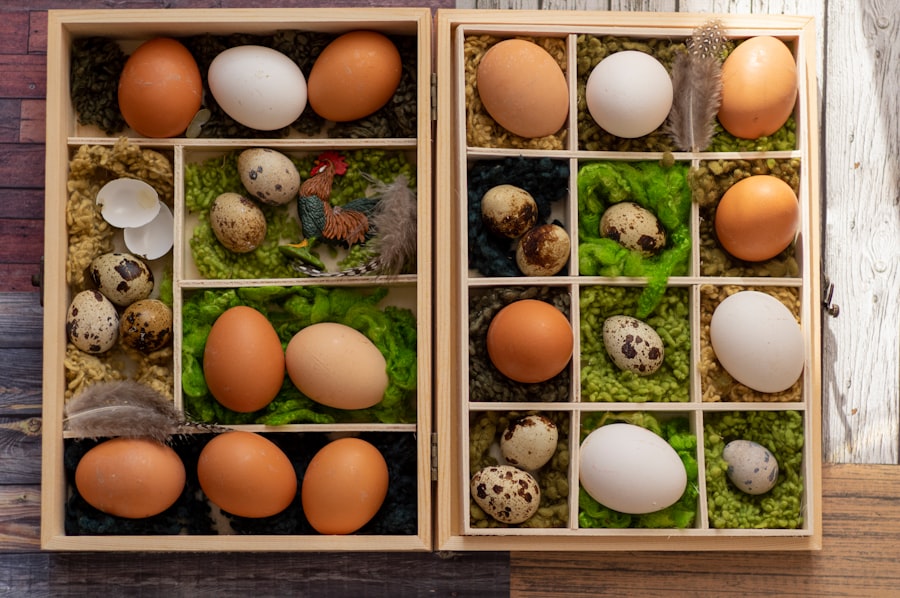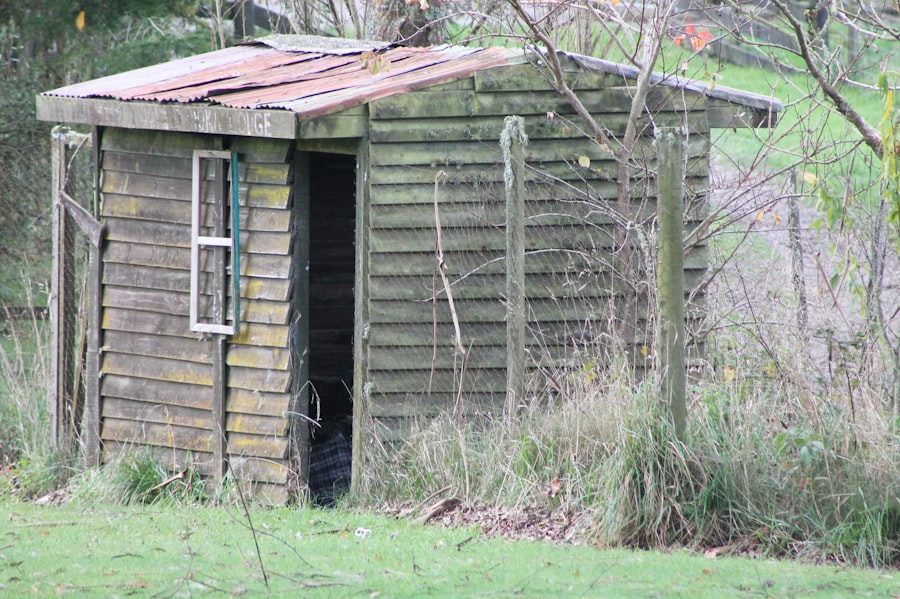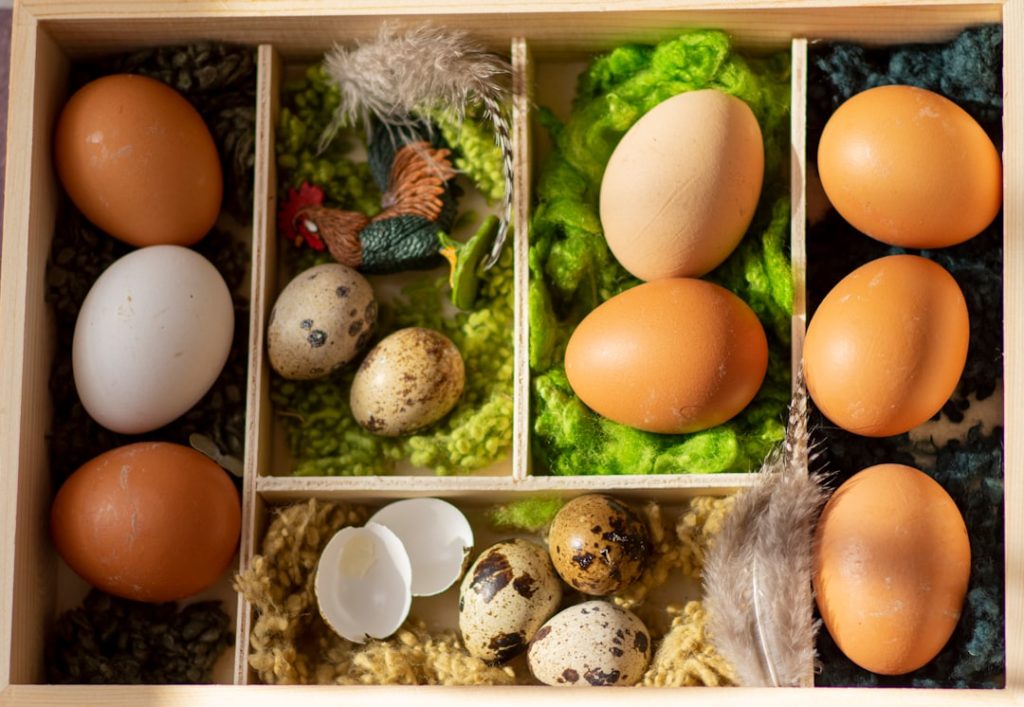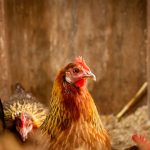When selecting chicken breeds, it’s essential to consider various factors to ensure a successful and rewarding experience. Popular egg-laying breeds include Rhode Island Red, Leghorn, and Australorp, while Plymouth Rock and Wyandotte are known for their dual-purpose qualities. For those seeking docile and friendly chickens, Orpington and Silkie breeds are excellent choices.
Climate and environment play a crucial role in breed selection, as some chickens are better adapted to cold weather, while others thrive in warmer conditions. Available space is another important consideration, as certain breeds require more room to roam than others. Egg-laying capabilities vary among breeds.
Leghorns and Rhode Island Reds are known for their high egg production. For meat production, breeds like Cornish Cross and Freedom Ranger are preferred due to their rapid growth and flavorful meat. Some breeds exhibit broodiness, which is beneficial for those interested in hatching their own chicks.
By carefully evaluating these factors and conducting thorough research, chicken keepers can select breeds that align with their specific needs and thrive under their care.
Table of Contents
- 1 Building a Coop
- 2 Providing Proper Nutrition
- 3 Ensuring Safety and Security
- 4 Maintaining Cleanliness
- 5 Handling Health and Wellness
- 6 Creating a Suitable Environment
- 7 FAQs
- 7.1 What are the basic requirements for keeping chickens in a backyard?
- 7.2 How much space do chickens need in a backyard?
- 7.3 What should be included in a chicken coop?
- 7.4 What do chickens eat and drink?
- 7.5 How do you protect chickens from predators in a backyard?
- 7.6 Are there any local regulations or laws to consider when keeping chickens in a backyard?
Key Takeaways
- Consider the climate, space, and purpose when choosing the right breed of chicken for your coop.
- When building a coop, prioritize ventilation, predator-proofing, and easy access for cleaning and egg collection.
- Provide proper nutrition by offering a balanced diet of commercial feed, fresh water, and occasional treats.
- Ensure safety and security by installing fencing, locks, and predator deterrents to protect your chickens.
- Maintain cleanliness by regularly cleaning the coop, nesting boxes, and feeding areas to prevent disease and pests.
- Handle health and wellness by monitoring for signs of illness, providing regular veterinary care, and practicing good biosecurity.
- Create a suitable environment by offering space to roam, perches for roosting, and nesting boxes for laying eggs.
Building a Coop
Providing Adequate Space and Ventilation
When designing and constructing a coop, it’s essential to provide adequate space for your chickens to move around freely and engage in natural behaviors such as scratching and dust bathing. A general rule of thumb is to allow at least 2-3 square feet of space per chicken inside the coop, with additional space provided in the outdoor run area. This will help prevent overcrowding and reduce the risk of aggression and stress among the flock. Proper ventilation is also crucial to maintain good air quality and prevent the buildup of moisture, which can lead to respiratory issues and other health problems.
Protecting Your Flock from Predators and the Elements
The coop should provide protection from predators and the elements. This includes secure doors and latches to prevent access from predators such as raccoons, foxes, and birds of prey, as well as sturdy construction to withstand extreme weather conditions. The coop should also be raised off the ground to prevent flooding and provide a dry environment for the chickens.
Choosing the Right Materials and Adding Essential Features
When it comes to materials, using durable and easy-to-clean materials such as wood or plastic will help ensure the longevity of the coop and make maintenance more manageable. Additionally, consider adding nesting boxes for your hens to lay their eggs, as well as roosting bars for them to perch on at night. By carefully planning and constructing a well-designed coop, you can create a safe and comfortable home for your chickens that promotes their health and well-being.
Providing Proper Nutrition

Proper nutrition is essential for the health and productivity of your chickens. A well-balanced diet provides the necessary nutrients for egg production, growth, and overall vitality. When it comes to feeding your chickens, there are several key components to consider to ensure they receive the nutrition they need.
A good quality commercial feed formulated specifically for chickens is an excellent foundation for their diet. These feeds are typically available in different formulations depending on the age and purpose of the chickens, such as starter feed for chicks, grower feed for young chickens, and layer feed for hens producing eggs. It’s important to provide the appropriate feed for each stage of development to support healthy growth and egg production.
In addition to commercial feed, it’s beneficial to supplement your chickens’ diet with fresh fruits and vegetables, as well as kitchen scraps and garden trimmings. This provides additional nutrients and variety in their diet, promoting overall health and well-being. Additionally, offering access to grit and oyster shell allows chickens to regulate their calcium intake for strong eggshells and proper digestion.
Fresh, clean water should always be available to keep your chickens hydrated and support their overall health. It’s important to regularly clean and refill waterers to prevent contamination and ensure access to clean water at all times. By providing a well-rounded diet that meets their nutritional needs, you can support the health and vitality of your flock, leading to happy and productive chickens.
Ensuring Safety and Security
Ensuring the safety and security of your chickens is paramount in protecting them from potential threats such as predators, disease, and accidents. One of the most critical aspects of chicken safety is predator-proofing their coop and outdoor run area. This includes using sturdy fencing with small gaps to prevent access from predators such as raccoons, foxes, and dogs.
Additionally, consider adding an apron of wire mesh around the perimeter of the coop to deter digging predators like weasels and foxes. Secure latches on doors and windows will help prevent unauthorized entry into the coop, while motion-activated lights or alarms can provide an extra layer of protection against nocturnal predators. In addition to predator-proofing, it’s important to regularly inspect the coop and outdoor area for any potential hazards or weaknesses that could pose a risk to your chickens.
This includes checking for loose or damaged fencing, sharp objects, or toxic plants that could harm your flock. Providing adequate shelter from extreme weather conditions such as heat, cold, wind, and rain is also essential for their safety and well-being. By taking proactive measures to secure their environment and minimize potential risks, you can create a safe and secure space for your chickens to thrive.
Maintaining Cleanliness
Maintaining cleanliness in your chicken coop is essential for promoting good health and preventing disease among your flock. Regular cleaning helps remove waste, bacteria, parasites, and odors that can lead to health issues if left unchecked. One key aspect of cleanliness is keeping the coop dry by regularly removing soiled bedding and replacing it with fresh bedding material such as straw or wood shavings.
This helps prevent moisture buildup that can lead to mold growth and respiratory issues in chickens. In addition to regular bedding changes, it’s important to keep nesting boxes clean by removing soiled bedding and replacing it with fresh material to provide a clean environment for egg-laying hens. Regularly cleaning feeders and waterers prevents contamination from mold or bacteria that could make your chickens sick.
Finally, maintaining a clean outdoor run area by regularly raking up droppings and removing debris helps reduce parasite populations and prevents the spread of disease among your flock. By implementing a regular cleaning routine that addresses all areas of the coop and outdoor space, you can create a clean and healthy environment for your chickens to thrive.
Handling Health and Wellness

Monitoring Your Flock’s Health
This includes observing their behavior, appearance, eating habits, and egg production on a daily basis. Any changes in these areas could indicate an underlying health concern that requires attention.
Establishing a Relationship with a Veterinarian
In addition to observation, it’s important to establish a relationship with a veterinarian who specializes in poultry care. A veterinarian can provide guidance on preventative care measures such as vaccinations, parasite control, and nutrition management to support the health of your flock. They can also offer advice on how to handle common health issues such as respiratory infections, egg binding, or injuries.
Promoting Overall Wellness
Furthermore, providing opportunities for exercise and mental stimulation through access to an outdoor run area or free-ranging can promote overall wellness in your flock. This allows them to engage in natural behaviors such as scratching, pecking, dust bathing, and exploring their environment. By prioritizing regular health checks, seeking professional veterinary care when needed, and providing opportunities for physical activity and mental stimulation, you can support the health and wellness of your chickens.
Creating a Suitable Environment
Creating a suitable environment for your chickens involves providing them with everything they need to thrive physically, mentally, and emotionally. This includes offering adequate space both inside the coop and in an outdoor run area where they can move around freely, engage in natural behaviors such as scratching and dust bathing, and have access to fresh air and sunlight. In addition to space considerations, it’s important to provide enrichment activities such as perches for roosting, nesting boxes for laying eggs, dust bathing areas filled with sand or diatomaceous earth, and toys or objects that encourage pecking or exploration.
Furthermore, ensuring a peaceful environment free from excessive noise or disturbances promotes emotional well-being in your flock. This includes minimizing loud noises or sudden movements around the coop area that could cause stress or anxiety in your chickens. By creating a suitable environment that meets their physical, mental, and emotional needs, you can promote overall well-being in your flock and create a harmonious living space for both you and your chickens.
In conclusion, raising chickens involves careful consideration of various factors such as breed selection, coop construction, nutrition management, safety measures, cleanliness practices, health care protocols, and environmental enrichment strategies. By prioritizing these aspects of chicken care with diligence and attention to detail, you can create a thriving environment for your flock that supports their health, happiness, productivity, and overall well-being.
If you’re considering keeping chickens in your backyard, you may want to invest in a quality chicken coop like the Producers Pride Sentinel Chicken Coop. This coop, as discussed in a related article on Poultry Wizard, provides a safe and comfortable space for your chickens to live and lay eggs. It’s important to consider the size of the coop and how many chickens you plan to keep, as discussed in another article on Poultry Wizard about how many chickens you need for a family of four. These resources can help you make informed decisions about keeping chickens in your backyard. Source: https://poultrywizard.com/keeping-chickens/producers-pride-sentinel-chicken-coop/
FAQs
What are the basic requirements for keeping chickens in a backyard?
To keep chickens in a backyard, you will need a secure coop or housing, access to fresh water, proper nutrition, and protection from predators.
How much space do chickens need in a backyard?
Chickens need at least 2-3 square feet of space per bird inside the coop, and at least 8-10 square feet of outdoor space per bird for foraging and exercise.
What should be included in a chicken coop?
A chicken coop should include roosting bars, nesting boxes, proper ventilation, and protection from the elements and predators. It should also be easy to clean and maintain.
What do chickens eat and drink?
Chickens need access to fresh water at all times, as well as a balanced diet of commercial chicken feed, supplemented with kitchen scraps, grains, and greens.
How do you protect chickens from predators in a backyard?
To protect chickens from predators in a backyard, you can use secure fencing, predator-proof coop design, and motion-activated lights or alarms. It’s also important to bring chickens inside the coop at night.
Are there any local regulations or laws to consider when keeping chickens in a backyard?
Many cities and towns have regulations or ordinances regarding keeping chickens in a backyard, including limits on the number of chickens, coop placement, and noise restrictions. It’s important to check local laws before starting a backyard chicken flock.
Meet Walter, the feathered-friend fanatic of Florida! Nestled in the sunshine state, Walter struts through life with his feathered companions, clucking his way to happiness. With a coop that’s fancier than a five-star hotel, he’s the Don Juan of the chicken world. When he’s not teaching his hens to do the cha-cha, you’ll find him in a heated debate with his prized rooster, Sir Clucks-a-Lot. Walter’s poultry passion is no yolk; he’s the sunny-side-up guy you never knew you needed in your flock of friends!







